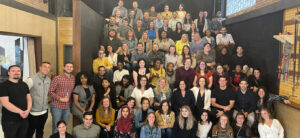
The NowPow Platform is No Longer Supported
Thank you for being a loyal NowPow user
Looking for the NowPow platform?
Bookmark app.nowpow.com for quick access to log into the NowPow platform. You can also click on the button below to get to the NowPow sign in page:
Need support with the NowPow platform?
Please email support@nowpow.com with any login issues or other product support and a team member will be in touch.
Interested in learning more about Unite Us or how to get started?
You can connect with the Unite Us team here.